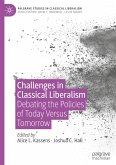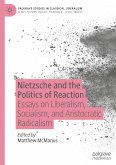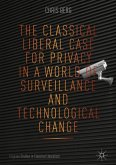This short, engaging book challenges the widely held belief that classical liberalism is the original and authentic form of liberalism. The book argues that this narrative often used to position libertarianism as the true liberal tradition and social democratic liberalism as a distortion is built on historical misunderstandings of the terms liberal and liberalism .
Focusing on English and American contexts, the book uses primary sources to show that the free-market doctrines of Adam Smith, later interpreted by thinkers like Hayek and Friedman as libertarian principles, should not be conflated with liberalism. Instead, liberalism first emerged in nineteenth-century England as a political philosophy rooted in constitutionalism and republicanism. The book also examines how Franklin D. Roosevelt reshaped American political language by associating liberals with New Deal supporters and conservatives with its opponents. By exploring these two pivotal moments and the broader political and economic history that connects them, de Marneffe redefines classical liberalism and critiques rigid interpretations of liberal thought. This book will appeal to scholars of politics, philosophy, economics, and the history of ideas.
Focusing on English and American contexts, the book uses primary sources to show that the free-market doctrines of Adam Smith, later interpreted by thinkers like Hayek and Friedman as libertarian principles, should not be conflated with liberalism. Instead, liberalism first emerged in nineteenth-century England as a political philosophy rooted in constitutionalism and republicanism. The book also examines how Franklin D. Roosevelt reshaped American political language by associating liberals with New Deal supporters and conservatives with its opponents. By exploring these two pivotal moments and the broader political and economic history that connects them, de Marneffe redefines classical liberalism and critiques rigid interpretations of liberal thought. This book will appeal to scholars of politics, philosophy, economics, and the history of ideas.








